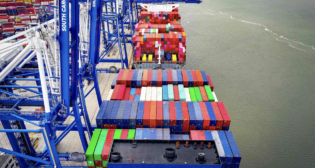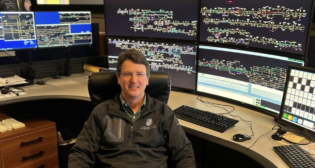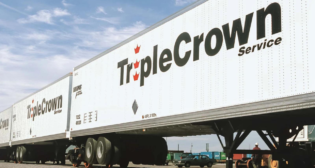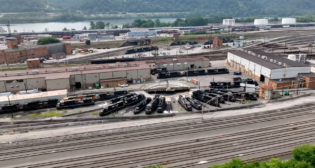
North American Rail Craves Stability. A New Year’s Resolution to That Effect Might Be in Order
Written by David Nahass, Financial Editor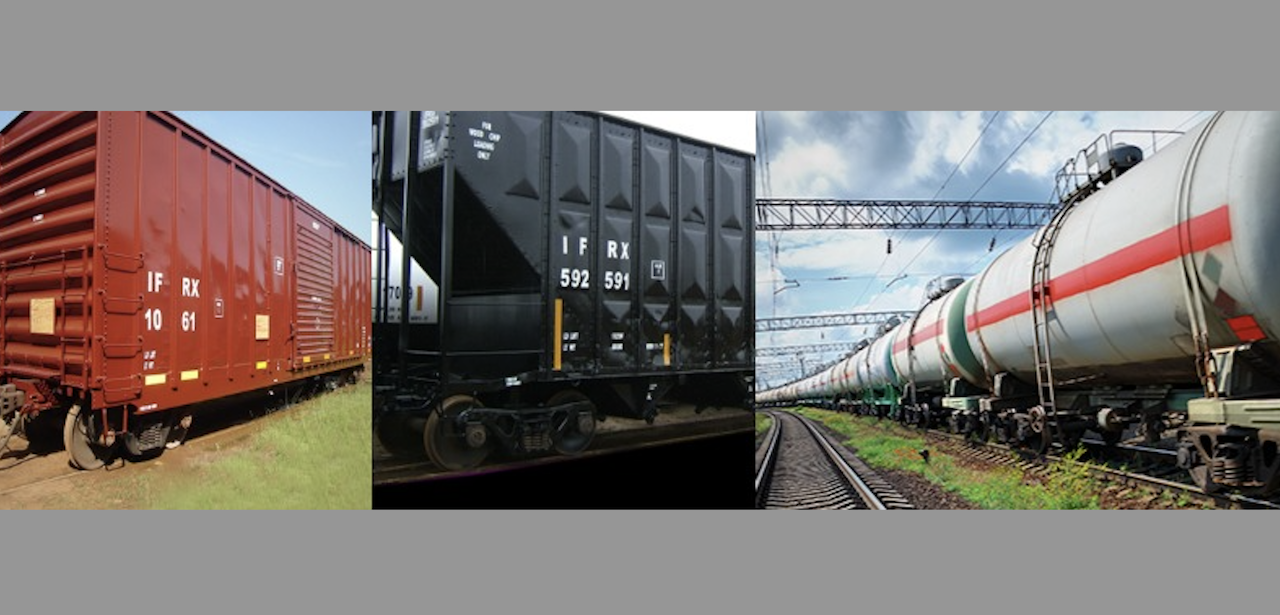
Images Courtesy of Infinity Transportation
FINANCIAL EDGE, RAILWAY AGE JANUARY 2023 ISSUE: There is a reason why John Lennon wrote songs and Financial Edge is a column. Perhaps a restatement of what Rolling Stone noted about the Maroon 5 version of “Happy Xmas (War is Over)” is in order: Quickie quiz: Are you John Lennon? No! Are you Yoko Ono? Also no! The next question should be easy: On what planet are you qualified to remake their classic “Happy Xmas (War Is Over)”? Not this one!
Perhaps instead of shouting, the collective rail industry can either grind some teeth or breathe a sigh of relief (depending on how you view the forced labor settlement) and get back to the business of increasing rail volumes. That is of course if there is not an exodus of railroad workers after the average $16,000 backpay deposits into bank accounts right in time to pay off holiday shopping bills.
Loadings stagnation/declines, supply chain woes, the threat of a recession and continued interest rate increases have boggled up what traditionally makes markets look rational. Traditional causes of expansion and contraction have been turned on their ear. Forecasting is made that much more difficult.
Nonetheless, Financial Edge is not above making predictions. Readers should expect 2023 to look similar to 2022, with higher cost inputs for transportation, service-related railroad issues (in spite of the small improvements being made by the railroads. Expect continued high lease rates in 2023 as railcar manufacturing is not increasing the inventory of available railcars. Lease rates could trend upward if scrap rises above $300/ton (currently at $295/ton) and car owners scrap equipment. Difficult to imagine loadings in 2023 trending much higher than 2022.
What could cause changes? If the railroads hire into a recession (over stalling or contracting), velocity and transit times could move to a nominal mean.
That could allow marginalized post-pandemic freight back on the rails. That could have a negative impact on railcar lease rates and railcar demand. Short-term railcar users may go long on equipment rather than face railcar off-boarding and on-boarding costs if post-recession service pivots negative.
As an industry North American rail craves stability. A New Year’s resolution to that effect might be in order.
In the past few weeks, railcar leasing lost two gentlemen prematurely.
Eugene “Gene” Martini began his rail career joining Wilds Pierce at Railcar, Ltd. In the early 1990s as CFO and then President. After Railcar, Ltd was sold, Gene, with a few Railcar employees, launched Infinity Rail in 2004, raising equity from high-wealth individuals.
In 14 years, Infinity moved from individuals to Perella Weinberg Partners and finally Global Atlantic Financial Group. Today, Infinity Transportation is now owner of 40,000 railcars. Gene had a creative and nimble mind. He loved to tackle challenging transactions he affectionately called “Gene’s deals.” He was a well-liked gentleman of great character. Jeff Edelman, President of Infinity Transportation and Gene’s right-hand man during the early days of Infinity Rail said, “Gene was one of the good ones and I was extremely proud to call him my partner.” Gene retired from Infinity in 2018, but remained active in other entrepreneurial endeavors. He passed away in November at the age of 77.

Ken Miller lost his life prematurely to ALS at the age of 60. Ken began as a scrap trader in 1987. He began to work in railcar leasing in 1990 at The David J Joseph Company (pre-Nucor ownership), which started a railcar leasing business as an adjust to its scrap yards. Along with Doug McMillian, Ken built DJJ into a profitable “buy low, sell high” franchise working with a host of bank partners to unlock and monetize asset value. That business model is still in play today by a number of railcar investors. Ken went onto work at Helm Financial Corp. in 2001 as President of Joint Ventures partnering with Class I railroads until its sale to Wells Fargo Rail in 2014. Ken did advocacy work for ALS, fighting until the end. He was creative and thoughtful and will be missed.
Got questions? Set them free at [email protected].
